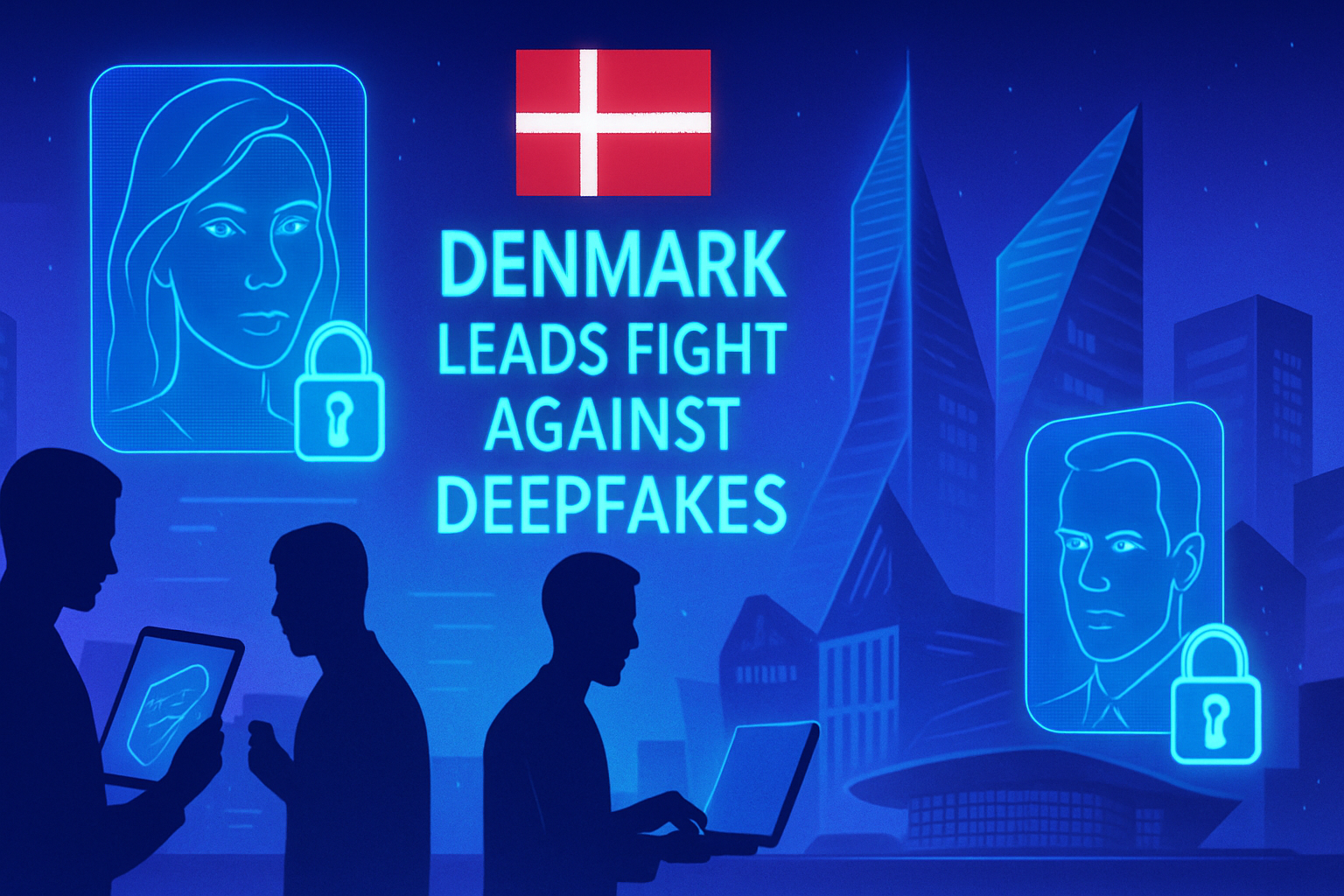Denmark stands out for a bold legislative initiative aimed at protecting individuals against deepfakes. This approach is realized through the modification of copyright laws, granting citizens control over their personal characteristics. As technology evolves rapidly, concerns about digital identity intensify. The political will is framed within an innovative legal context, aiming to curb abuses related to the use of digital imitations. The implications of this reform resonate well beyond Danish borders, inviting other nations to follow suit.
Strengthening Copyright in Denmark
The Danish government has decided to strengthen the protection of digital identities by legislating on the use of deepfakes. This initiative, considered a first in Europe, aims to ensure that each individual has the right over their own physical and vocal characteristics. The Minister of Culture, Jakob Engel-Schmidt, announced that the draft law would be submitted for consultation before the summer break, with a presentation scheduled for the autumn.
Definition of Deepfakes
A deepfake is a digital representation of a person, realistically replicating their appearance and voice. The rapid evolution of technology makes it increasingly easy to create content that faithfully imitates others. In light of this situation, Denmark positions itself in favor of better regulation regarding copyright, thus defending individuals against abuses of digital imitations.
An Innovative Legal Framework
The modification of Danish copyright law will allow citizens to demand the removal of content generated without their consent. This will also apply to digital imitations of artists without their consent, ensuring enhanced protection against malicious uses of their image and voice. In case of infringement, compensation may be sought for affected individuals.
Support from Elected Officials
A large majority within parliament supports this legislation, with backing from nearly all political parties. This dynamic leads Minister Engel-Schmidt to hope that other European countries will follow suit to face this common challenge. Denmark plans to use its presidency of the Council of the European Union to share this initiative with other member states.
Reactions and Potential Consequences
Engel-Schmidt expressed his commitment to not tolerate individuals being “digitally photocopied” without their consent, emphasizing the need for robust legal protection. The new rules will not affect parodic or satirical content, which will continue to be allowed. Technology platforms will need to comply with this legislation or risk facing significant fines.
International Perspectives
This Danish movement is generating increasing interest across Europe, in a context where other countries must also address the issue of deepfakes. Following the necessity for AI regulation, some voices resonate with these concerns, as highlighted by Amandine Le Pen’s case regarding this disinformation phenomenon here. A collective action could thus be envisaged to protect individuals against these infringements of their identity.
The challenges posed by technology continue to grow. The minister’s impressions, who anticipates a significant response towards non-cooperative platforms, underscore an urgent need for effective regulations. If the situation is not properly managed, potentially severe consequences could arise, as specified in this speech in another case.
French President Emmanuel Macron’s friendly reaction to deepfakes reveals a growing awareness and the importance of addressing this issue proactively here. The necessity for ethical AI is becoming increasingly sensitive, according to various experts in the field here.
Finally, calls for strict AI regulation, issued by organizations such as Anthropic, highlight a collective awareness of the potential dangers these technologies may pose here.
Frequently Asked Questions about Danish Legislation against Deepfakes
What new rights does Denmark offer concerning deepfakes?
Denmark plans to strengthen individuals’ rights regarding copyright over their own physical and vocal characteristics, allowing them to contest the creation and distribution of deepfakes without their consent.
What is the exact definition of a deepfake according to the new Danish legislation?
A deepfake is defined as a highly realistic digital representation of a person, encompassing both their appearance and voice, thereby creating false imitations that can be misleading.
Who is protected by this new legislation on deepfakes in Denmark?
Any person whose appearance or voice can be realistically reproduced using AI technologies is protected by this legislation, thereby guaranteeing their right to image and voice.
What measures can be taken if a deepfake is distributed without consent?
Individuals can request online platforms to remove the relevant content, and potential sanctions may be imposed on platforms that do not comply with this request.
Does this new law impact the creation of parodies and satires?
No, the legislation specifies that parodies and satires will continue to be allowed, exempting these artistic forms from the new rules concerning deepfakes.
What are the risks for technology platforms if they do not comply with the law?
Platforms that do not adhere to the new legislation may face severe fines, and additional actions may be taken by the Danish government to enforce the law.
How might the new Danish legislation influence other European countries?
The Danish Minister of Culture hopes that other countries will follow this example by adopting similar legislations, highlighting the need for a collective approach in Europe to face the challenges posed by deepfakes.






